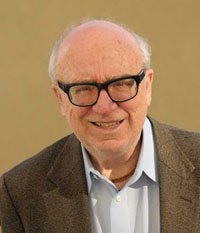Human Origins and Antiquity: A Vedic Perspective

Since 1984, Michael Cremo has explored concepts of human origins and antiquity from a perspective informed by his studies in India’s Vedic system of thought. The Vedic historical texts contain accounts of a human presence extending much further back in time than modern science allows. There is archeological evidence consistent with this. Michael will review some examples of such evidence, as documented in his book Forbidden Archeology, and share his experiences in presenting it to scientific audiences. This evidence for extreme human antiquity implies the need for alternatives to the current theories of human origins. Michael, in his book Human Devolution, proposes that such an alternative should be based on the idea that humans are a combination of three things: ordinary matter, a subtle yet material mind element, and a nonmaterial conscious self. According to this view, mind and consciousness are not temporary byproducts of brain chemistry. They have their own independent existence apart from matter. Michael will review some of the scientific research consistent with this idea, including the research conducted by the PEAR group. Altogether, the evidence suggests that as conscious individuals, we do not evolve up from matter, but devolve from a level of pure consciousness. Matter does not produce consciousness, but consciousness can become associated with matter in its gross and subtle forms. The conscious self can, however, be freed from its association with matter and restored to its original state.
Michael A. Cremo is an independent researcher in human origins and antiquity. He is a member of the World Archaeological Congress and the European Association of Archaeologists. Cremo is the principal author of the book Forbidden Archeology, a comprehensive historical survey of archaeological anomalies. He is also author of Human Devolution: A Vedic Alternative to Darwin’s Theory. Cremo examines human origins and antiquity from a worldview with foundations in ancient Indian thought. He has given invited lectures on his work at the Royal Institution in London, the anthropology department of the Russian Academy of Sciences in Moscow, the archeology department of the Ukrainian Academy of Sciences, and many other scientific institutions. He has also lectured on his work at universities throughout the world. He is a frequent guest on radio and television programs. His website is www.mcremo.com.
